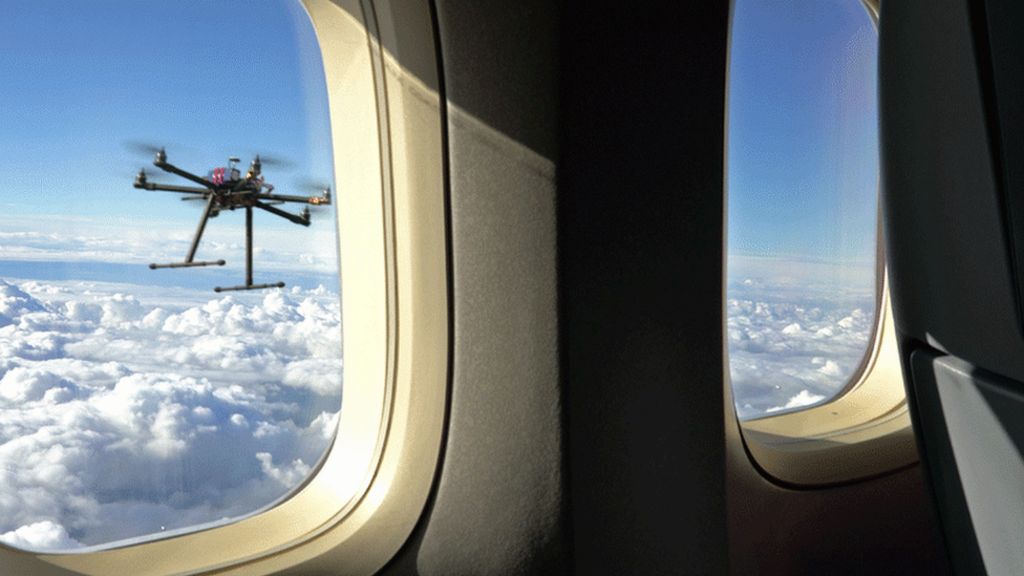Drone Collisions 'worse Than Bird Strikes For Planes'

 Image copyright
Getty Images
Image copyright
Getty Images
A US study into drone safety has suggested that collisions with aircraft are more damaging than bird strikes.
It said current aircraft manufacturing standards are not appropriate for the growth in drone use but stopped short of saying such hits could be fatal.
The US Federal Aviation Authority said it will work with drone-makers to develop technology to detect and avoid planes.
It estimated there will be 2.3 million drones in use by the end of this year.
The FAA study recreated a collision between a drone and an aeroplane using a computer simulation.
Models of two types of drone - the DJI Phantom 3 Standard quadcopter and a fixed-wing Precision Hawk Lancaster Hawkeye III were used.
A team of researchers from four universities conducted the research, using drones weighing 2.7lb to 8lb (1.2kg to 3.6kg).
The tests, conducted over 14 months, considered 140 scenarios, including the risk of a battery fire after a crash.
It concluded that airborne collisions could introduce "a significant economic burden" to aircraft operators, due to downtime and repairs.
It pointed out that windscreens on aircraft were particularly vulnerable to being damaged.
There are two recorded incidents of drones colliding with aircraft.
The first, in Canada, occurred in October. The drone hit a plane's wing but the aircraft sustained only minor damage and was able to land safely.
The second, in the US, involving a military helicopter, again landed safely but with damage to its main rotor blade.
A similar study in the UK - conducted by military research firm Qinetiq on behalf of the UK government- suggested that drone strikes could cause critical damage to planes.
The report has been criticised for the fact that it was released in summary form, making it hard to see the full methodology of the tests, and for the type of drone it used in testing.
The Drone Manufacturers Alliance Europe demanded that the government released the full testing results of the study.
The British government has since proposed licensing for all drone operators from next year.
In response to the FAA study, the Department for Transport told The Register: "This is a new and technically complex field and research is essential to ensure any safety risks are properly addressed. The department is considering the US research and will look to engage further with the FAA on this issue."
From Chip War To Cloud War: The Next Frontier In Global Tech Competition
The global chip war, characterized by intense competition among nations and corporations for supremacy in semiconductor ... Read more
The High Stakes Of Tech Regulation: Security Risks And Market Dynamics
The influence of tech giants in the global economy continues to grow, raising crucial questions about how to balance sec... Read more
The Tyranny Of Instagram Interiors: Why It's Time To Break Free From Algorithm-Driven Aesthetics
Instagram has become a dominant force in shaping interior design trends, offering a seemingly endless stream of inspirat... Read more
The Data Crunch In AI: Strategies For Sustainability
Exploring solutions to the imminent exhaustion of internet data for AI training.As the artificial intelligence (AI) indu... Read more
Google Abandons Four-Year Effort To Remove Cookies From Chrome Browser
After four years of dedicated effort, Google has decided to abandon its plan to remove third-party cookies from its Chro... Read more
LinkedIn Embraces AI And Gamification To Drive User Engagement And Revenue
In an effort to tackle slowing revenue growth and enhance user engagement, LinkedIn is turning to artificial intelligenc... Read more

